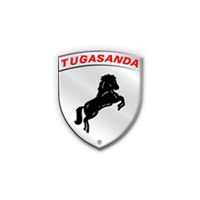DNV GL at MARINTEC CHINA 2019: New DNV GL Class Notation Helps to Boost LPG as Ship Fuel
SHANGHAI, Dec. 4, 2019 /PRNewswire/ -- As the maritime industry looks to reduce emissions to air and work towards the International Maritime Organization's (IMO) greenhouse gas reduction strategy, alternative fuels are coming to the fore. Classification society DNV GL, recognizing that, with the exception of LNG, international regulations for such fuels are absent, developed new class rules and a class notation "Gas fuelled LPG" for using liquefied petroleum gas (LPG) as fuel in anticipation of growing industry interest. A respective announcement was made today at Marintec China trade fair in Shanghai.
Picture is available at AP Images (http://www.apimages.com) and Presseportal
Except for liquefied natural gas, currently all gases and low-flashpoint fuels are subject to the 'alternative design approach', which means that they may be used if their safety, reliability and dependability of the systems can be shown to be equivalent to those achieved by new and comparable conventionally fuelled main and auxiliary machinery. This can be a time-consuming and costly process and may impede the uptake and expansion of lower emission alternative fuels.
"With the new rules and class notation, we want to offer owners interested in LPG a straightforward path towards compliance with the alternative design approach mandated by the IGF Code," said Geir Dugstad, Director of Ship Classification & Technical Director at DNV GL - Maritime. "As the fuel environment within the maritime industry becomes more diverse, it is essential that we continue to broaden the enabling rules and regulation to support these new choices."
"Gas as fuel is the best choice for the next decades, because it can be adapted to future carbon neutral fuels. For example, LPG and LNG infrastructure could be used for zero carbon fuels like ammonia, biogas and synthetic methane, depending on the materials used," said Knut Ørbeck-Nilssen, CEO DNV GL - Maritime, at the Marintec China trade fair in Shanghai.
The new rules and notation are based on DNV GL's rules for ships using LNG as fuel but account for the differences in properties and phases between LPG and LNG. The "Gas fuelled LPG" notation covers internal combustion engines, boilers and gas turbines for both gas-only and dual-fuel operations. It also includes requirements for the ship's fuel supply, considering all aspects of the installation from the bunkering connection up to and including the LPG consumers (main and auxiliary engines, boilers, etc.).
LPG as a fuel can lower a vessel's emissions to air, both in terms of greenhouse gases and other pollutants. It virtually eliminates sulphur emissions and reduces GHG output by approximately 17 per cent compared to burning HFO or MGO. LPG could also act as a bridging fuel to ammonia, as the materials used for LPG tanks and systems is, in most cases, suitable for ammonia. With advanced planning, the adjustments needed for a switch to ammonia from LPG could also be minimized.
Read more about LPG as ship fuel in our MARITIME IMPACT portal:
About DNV GL
Driven by our purpose of safeguarding life, property and the environment, DNV GL enables organizations to advance the safety and sustainability of their business. We provide classification, technical assurance, software and independent expert advisory services to the maritime, oil & gas and energy industries. We also provide certification services to customers across a wide range of industries. Operating in more than 100 countries, our professionals are dedicated to helping our customers make the world safer, smarter and greener.
About DNV GL - Maritime
DNV GL is the world's leading classification society and a recognized advisor for the maritime industry. We enhance safety, quality, energy efficiency and environmental performance of the global shipping industry - across all vessel types and offshore structures. We invest heavily in research and development to find solutions, together with the industry, that address strategic, operational or regulatory challenges. For more information visit www.dnvgl.com/maritime
Media contact DNV GL:
Nikos Späth, Head of Media and Public Relations
DNV GL Maritime Communications
Phone: +49-40-36149-4856
Email: nikos.spaeth@dnvgl.com
View original content:http://www.prnewswire.com/news-releases/dnv-gl-at-marintec-china-2019-new-dnv-gl-class-notation-helps-to-boost-lpg-as-ship-fuel-300969335.html
SOURCE DNV GL



